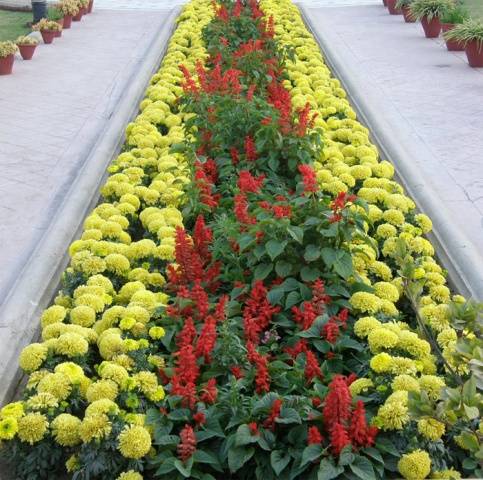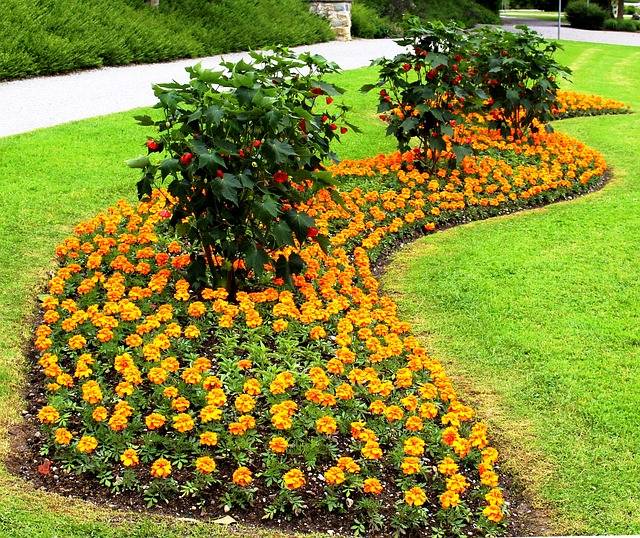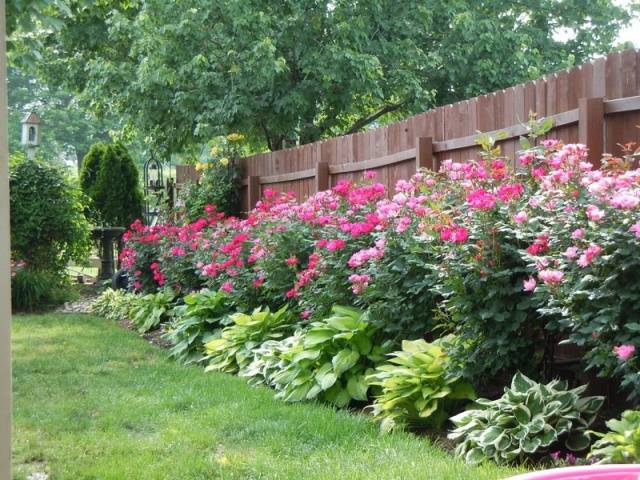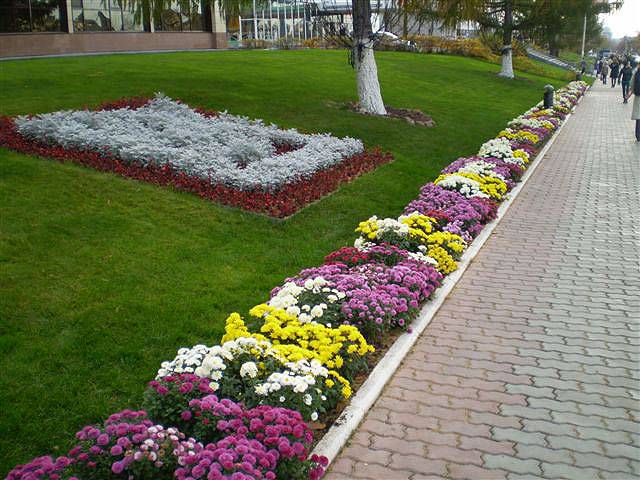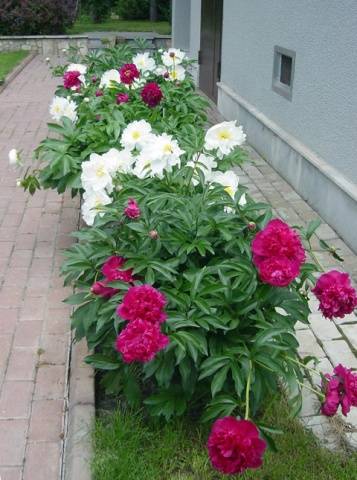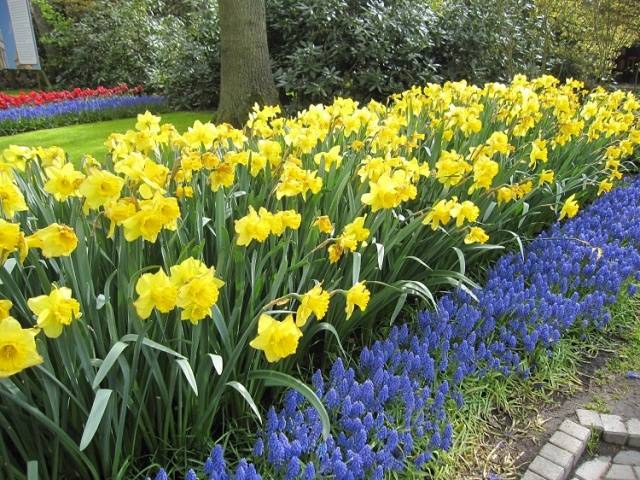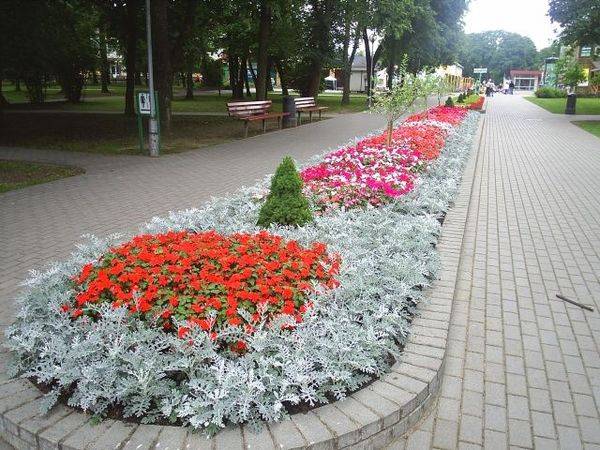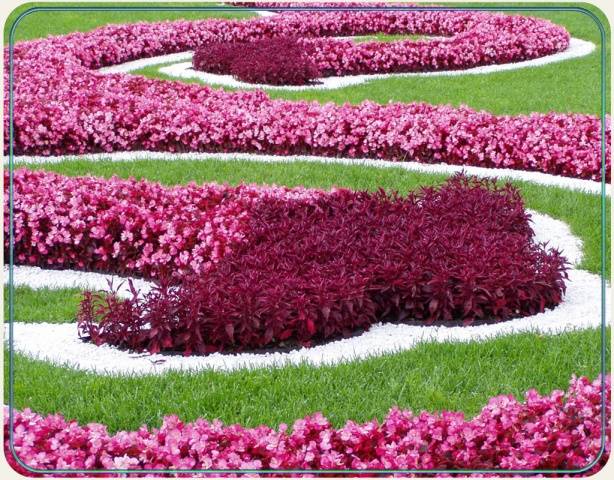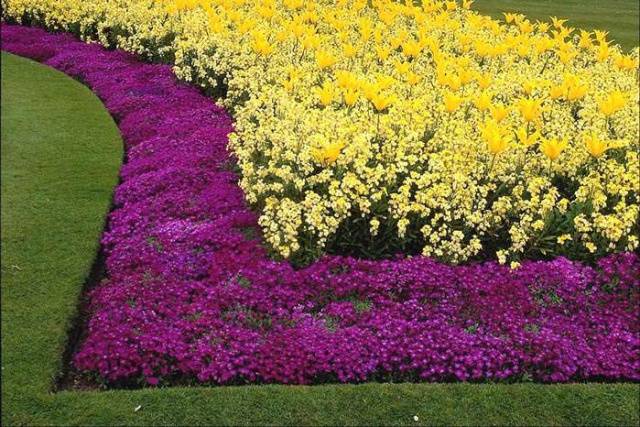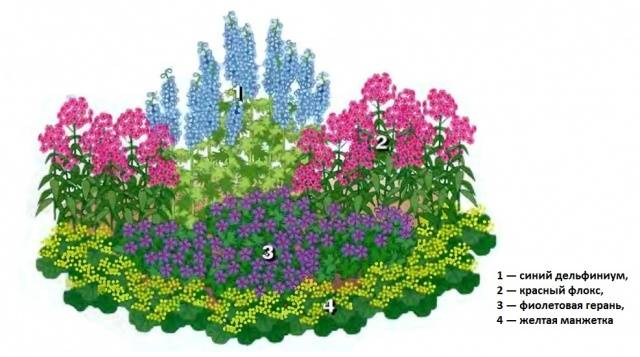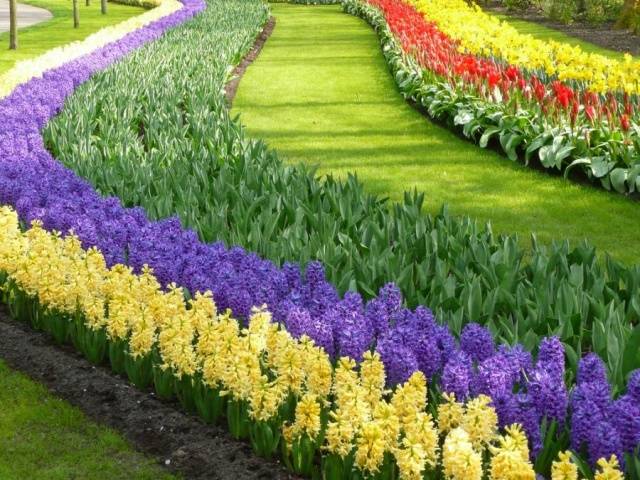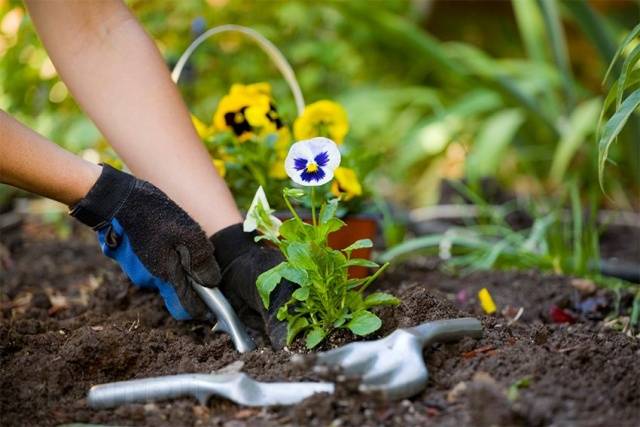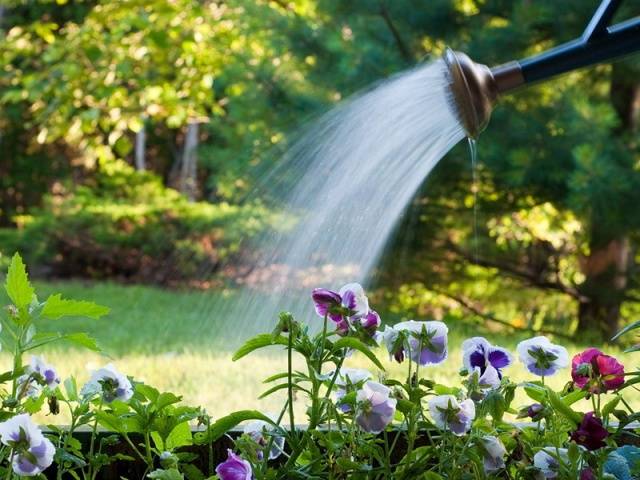Content
To decorate a personal plot beautifully, desire is not enough. It is also good to have a basic knowledge of landscape design. One of the options often used for landscape design is the rabatka.
What is it
A rabatka is a flower garden, most often rectangular, narrow and long. Width and length are in a ratio of 1: 3. So, if the width of the flower garden is 4 m, then the length will be, respectively, 12 m. Placed along the garden paths, fences, the foundation of the house. The function of the bed is to decorate or divide the site into zones. Such flower beds are actively used in the landscape design of our cities. The alleys are often divided by ornamental plants, decorated in a rabatka.
Once upon a time, a rabatka in Germany was called banal beds. And vegetables grew on them, respectively. Now the filling of the rabatka has changed to a flower one. Although you can plant spicy herbs. It will be both beautiful and useful.
Views
There are several signs by which a flower garden is classified.
By the location of the rabat:
- Symmetrical - in the middle of some space. For example, a lawn.
- Asymmetric - along a fence or foundation.
By plant species:
- Annual beds are created from plants that grow one season, delighting with bright colors.
- Perennials are planted with representatives of the flora that grow for 2-3 seasons without requiring a transplant. Perennial ridges along the path will delight you with their beauty for several years.
According to the method of planting plants of different heights:
- In a single-tier flower garden, plants of the same height are used for planting.
- In a two-tier, flowers form two parts in height: high and low.
- A multi-tiered flower garden consists of plantings of different heights.
By form:
- One-sided rabatka - tall plants are planted in the background along the fence or wall, then of medium height, in the foreground - undersized or ground cover. If you need to hide something, for example, the foundation of a house, then use plantings of the same color scheme. Or, conversely, plant blooming greens with a very bright color, then the flower garden will divert attention from construction errors.
- Double-sided rabatka - the middle part of the flower garden is occupied by tall plants, and low on the sides. Such a flower garden should be open to sight from all sides. Its best location is in the middle of the site. The function of the bed is to divide the site into zones.
- Intermittent rabatka - a long flower garden is divided for convenience with a decorative stone, a path or undersized plants, or a large single plant (rose, dahlia, peony). It is not at all necessary that the shape of the rabat be rectangular, it can be very different: both drop-shaped and wavy.
By color scheme:
- Monochrome - use for decoration of a flower bed of plants blooming in the same color scheme.
- Contrast collar - the use of two or more colors.
DIY rabatka
Most citizens cannot boast of large areas of their plots. Therefore, choose the appropriate size of the rabatka, it is better if its width is 0.5 meters.
Sketch
The step-by-step action plan for creating a rabat is as follows.
First, plan. Start with a piece of paper. Draw what you want your rabat to look like. First of all, decide on the shape. Whether it will be straight rows or fancy patterns, you decide. Next, decide what color scheme your flower bed will be. You will combine plants of the same species, but different colors.Either go the hard way of combining annuals and perennials, or use flowers and plants with an unusual shape and color of leaves. This is a good move, as flowering plants usually lack greenery.
Below is a possible layout of perennials:
A place for a flower garden
Next step. It is necessary to navigate the terrain. Determine the place where the flower garden will be and what conditions there are. Conditions are important to your pets. Will there be shade or bright sun, high humidity? Consider the type of soil so that the plants grow well and delight you with exuberant flowering. If you want to decorate the site with tiered plantings, then heed the advice from landscape designers: 1 sq. m flower garden should be placed 4 tall plants, 5 medium and 9 small.
Plant species
When choosing flowers, keep in mind the timing of flowering. Everyone wants the rabatka to please with the process of continuous flowering from early spring to late autumn.
Early flowering plants: daffodils, tulips, snowdrops, crocuses. Unfortunately, this beauty is short-lived.
After the bulbous, one-year-olds can be planted in the vacant space: ageratum, calendula, petunia, marigolds, lobelia, pansies.
Ornamental annuals can be added to the flowering ones: seaside cineraria, crested chlorophytum, hybrid coleus. It is also possible to use vegetable crops in a rabatka: carrots and beets, parsley and zucchini.
Perennials make life easier for gardeners. Irises, phloxes, lilies, lupins, hosta, peonies, bergenia, fern look good in a rabatka. The use of low-growing conifers is not prohibited: spruce, juniper. And spicy herbs: lemon balm, sage, thyme, mint, rosemary, which contain essential oils in their composition, will fill the garden with indescribable aromas, and they will be of great benefit to you. Use herbs as spices or brew tea.
Landing
We pass from theory to step-by-step actions. We prepare garden tools. You will need:
- shovel;
- rake;
- pegs with ropes;
- watering can;
- decorative stone, tiles - what you will use to decorate the edges of the border;
- you may need a supply of fertile land and fertilizer.
First, we make markings with the help of a peg and a rope, where the flower garden will directly be. We dig up the ground, apply fertilizers. If the land has never been dug before in this area, then it is necessary to remove the top layer of sod to a depth of 10-15 cm, taking into account the shape of the rabatka. Then we pour gravel into this depression for drainage, then the earth mixed with fertilizers. Next, armed with our sketch, we begin to plant the plants. Start from the center, gradually work towards the edges. It is more comfortable. Otherwise, the landings will be trampled and damaged.
When the plants are planted, water should be used. If you plan to finish the edge of the flower garden with a decorative element, then do it before watering.
It will take some time for the plants to take root and adapt. Very soon the view of the rabatka will change for the better.
Care
Blooming healthy plants are the dream and pride of any gardener. Don't forget that your flower garden will require attention. It is important to water on time. Consider the weather conditions. Remember to loosen the soil and remove weeds... Then the fit will look neat. If the flower died for some reason, it should be replaced with a healthy one. Fertilize the plants, then there will be no losses due to lack of nutrients.
In autumn, perennial plants are freed from dried greenery and covered. You can place pegs with inscriptions so that you know for sure what and where winters. Be sure to inspect the plants, remove the dead and plant overgrown ones.
Annual plants in the fall must be removed so that there are no processes of decay and the spread of diseases.
Conclusion
Creating a rabatka is a fascinating creative activity, in the process of which dreams and aesthetic preferences will come true. Every day you will receive satisfaction and true pleasure from the work done. And on long winter evenings you will look at the photos of the past gardening season and make new plans. You can stock up on new ideas by watching the video:
